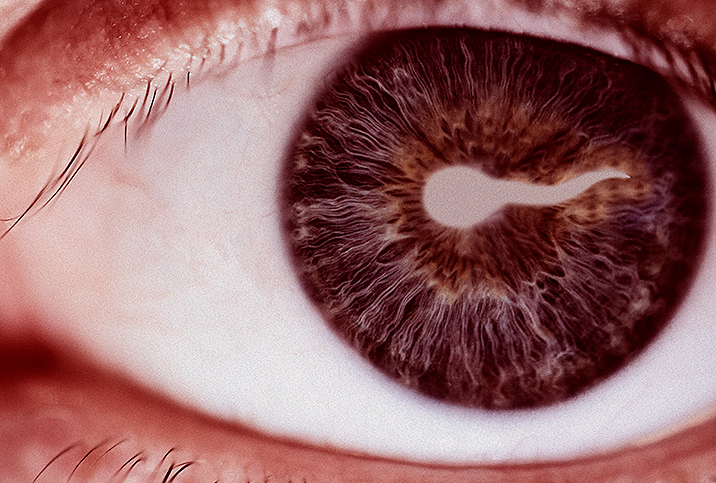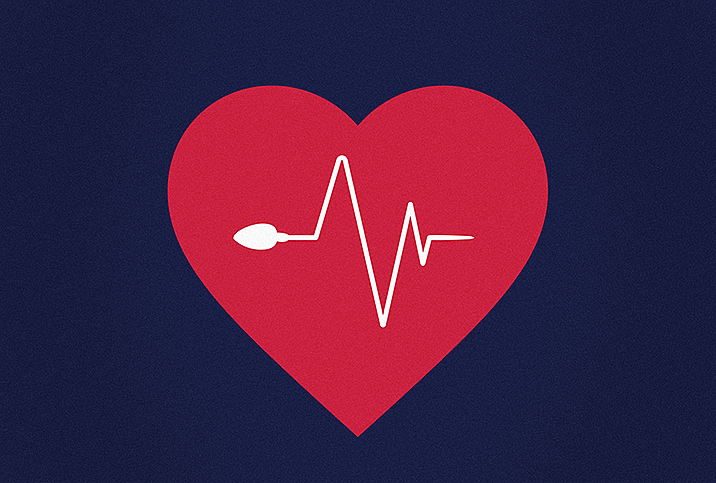I Tried the Infamous 'Holy Grail' Supplement Stack to Boost My Semen

Let's be generous and say health care in the United States has some issues. When you combine rising medical costs with the number of egregious TikToks proclaiming modern-day snake oil remedies, it's no wonder an estimated 1 in 10 Americans turn to social media for health advice.
Match that with our acceptance of dietary supplements. Per the 2019 Council for Responsible Nutrition (CRN) Consumer Survey, 74 percent of men and 79 percent of women reported consuming dietary supplements. As Nancy Weindruch, vice president of communications for the CRN, said at the time, "More than three-quarters of Americans are taking dietary supplements each year—a crystal-clear trend that serves as an indicator of the vital role supplementation plays in their overall health and wellness regimens."
All of the above might be why the "Holy Grail of Cum Load Increase" thread keeps resurfacing.
The theory is, and bear with me on this one, there's a combination of supplements that purportedly gives you "porn star-quality" ejaculate volume. Legend has it the recipe originally showed up on some of the infamous bodybuilding forums in the early days of the internet.
Basically, the "Holy Grail" is a supplement stack full of herbs and amino acids, such as l-arginine, l-lysine, zinc, pygeum, Korean ginseng, maca and lecithin, that when taken every day supposedly amps up your sex drive, stiffens your penis, fine-tunes orgasm intensity and improves both semen color and volume.
The problem with listening to anecdotal evidence from me or some other random person on the internet is that I am not you. My body is completely different from your body.
Many of these supplements can be sold without approval from the Food and Drug Administration and face little to no oversight concerning their safety or efficacy before hitting the marketplace. You can walk right into a CVS and pick up St. John's wort along with your shampoo and condoms. With this easy availability in mind, I went against my better judgment and decided to try the Holy Grail supplement stack for 30 days to see those famous results for myself.
Sourcing the supplements
I began with a couple of hours of research. I've been a Redditor for about 13 years, which has been a godsend for picking up the little tips and tricks needed to navigate the 2.8 million-plus subreddits out there for non-NSFL (not safe for life) resources. By searching through threads on r/supplements and r/vegan, I was able to track down sunflower lecithin, zinc, magnesium, maca and pygeum from a handful of vendors—most of them hosted on Amazon—to start my stack. I also picked up a bottle of horny goat weed from Walmart. Fun fact: My maca came in the form of a decadent chocolate hazelnut spread.
With my stack set up, I dived in headfirst and began my journey: I took a fistful of pills at once.
My first results occurred that night when I woke up soaked in sweat. After some quick Googling, I narrowed the culprit down to either the l-arginine or maybe the second dose of my prescribed Adderall I'd taken that afternoon. (I'm a walking pharmacy.)
The next day, I staggered my doses a bit more by taking 30 milligrams of zinc and 2,000 mg of lecithin in the morning, followed by 500 mg of magnesium, 400 mg of pygeum and 600 mg of maca in the afternoon. With user testimonies as my guide, I made sure to keep tabs on my own body, noting any unusual symptoms and side effects while keeping an eye out for anything that could be perceived as "male enhancing."
The problem was…nothing really happened.
How did that turn out?
"There is very little clinical evidence to show supplements billed as 'sex-drive enhancing' actually do what they promote," said Joel Brown, B.A., N.T.P., of Curated Wellness, a nutrition and supplement company based in Utah.
Brown added he wants guys to understand that when a supplement company makes big claims like boosting sex drive or sexual performance, consumers should be skeptical.
"That's not to say that these supplements aren't health-promoting in some general way, just that the customer may not get what they are spending their money on," Brown said.
I spent about $80 on my supplements. I can definitely report I did not have fun gulping down handfuls of pills in the morning, nor could I justify spending that kind of money every month when I have a toddler who eventually needs to go to college.
Personally, I found the most success with pygeum—an herbal supplement from the bark of the African plum tree—and sunflower lecithin, which Brown explained is a substance naturally produced by your liver to process and move fats. However, the results were negligible at best: no noticeable increase in semen amount, color or quality, just a slight increase in orgasm quality and perhaps stiffness. I think horny goat weed lived up to its name, but along with it came the heart palpitations I'd read about online.
"The biggest improvements won't come from a single supplement or pill," Brown explained.
"It's challenging to broadly recommend a supplement for everyone because each person is different. While zinc may help one guy, it may do nothing for another."
The problem with listening to anecdotal evidence from me or some other random person on the internet is that I am not you. My body is completely different from your body, and most of these "experiments" are done without scientific process or quality control.
Brown advised people to stop taking advice from social media and instead work with someone who knows how the body works, so you can choose a medication that works best for you.
"We suggest getting specific, individualized supplement recommendations from a health practitioner," he said. "Making lasting changes to what we eat, how much we move our bodies, how well we sleep and deal with stress, even how we show up in our personal relationships, all have an impact."
Editor's note: These statements have not been evaluated by the Food and Drug Administration. Our medical experts advise that you consult with your primary healthcare provider before you begin using a supplement. This information is not intended to diagnose, treat, cure or prevent disease.


















